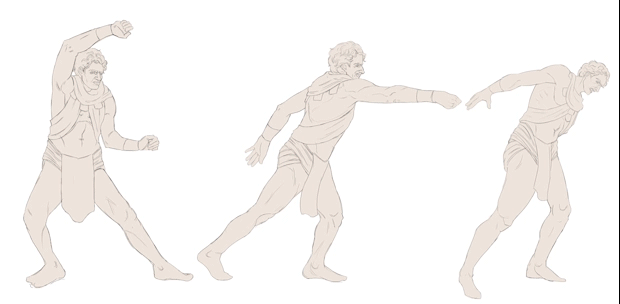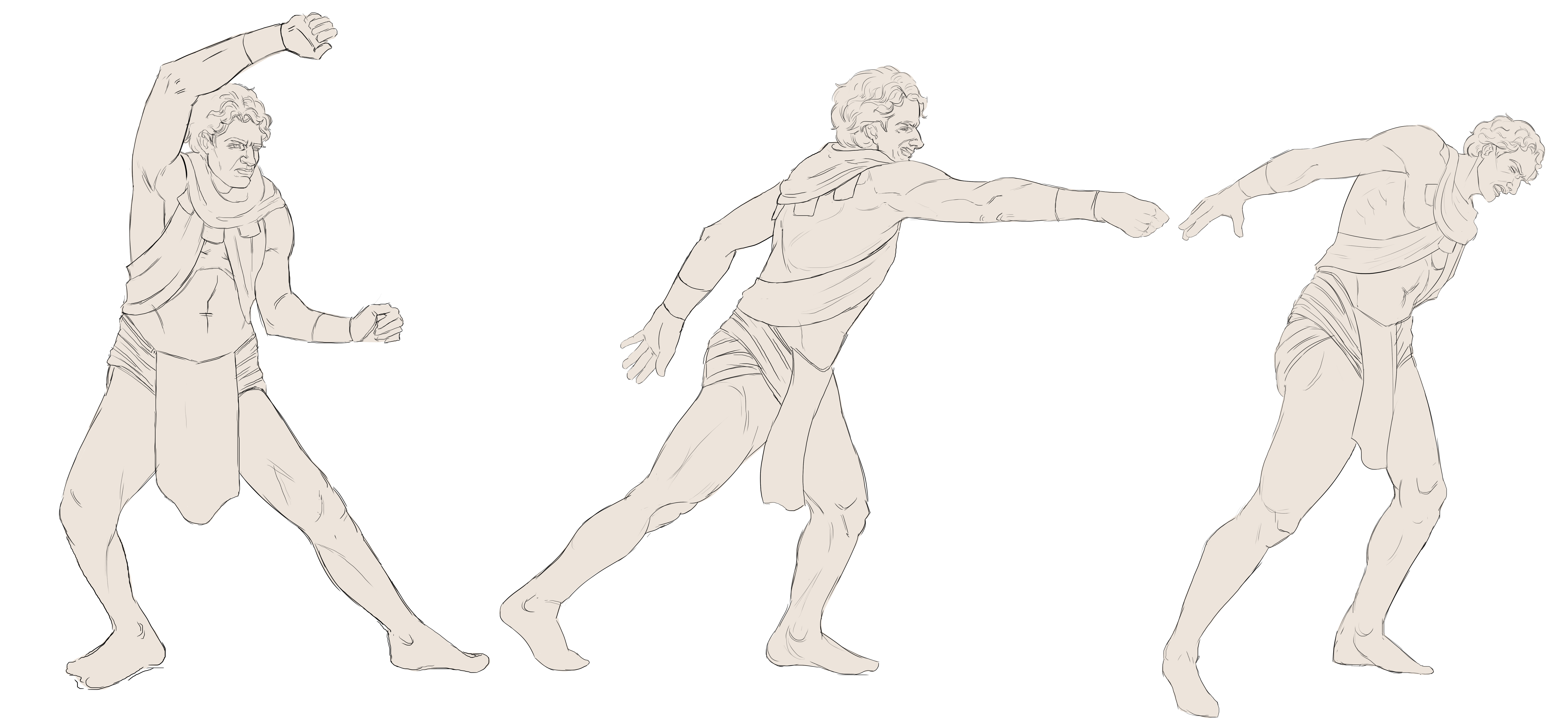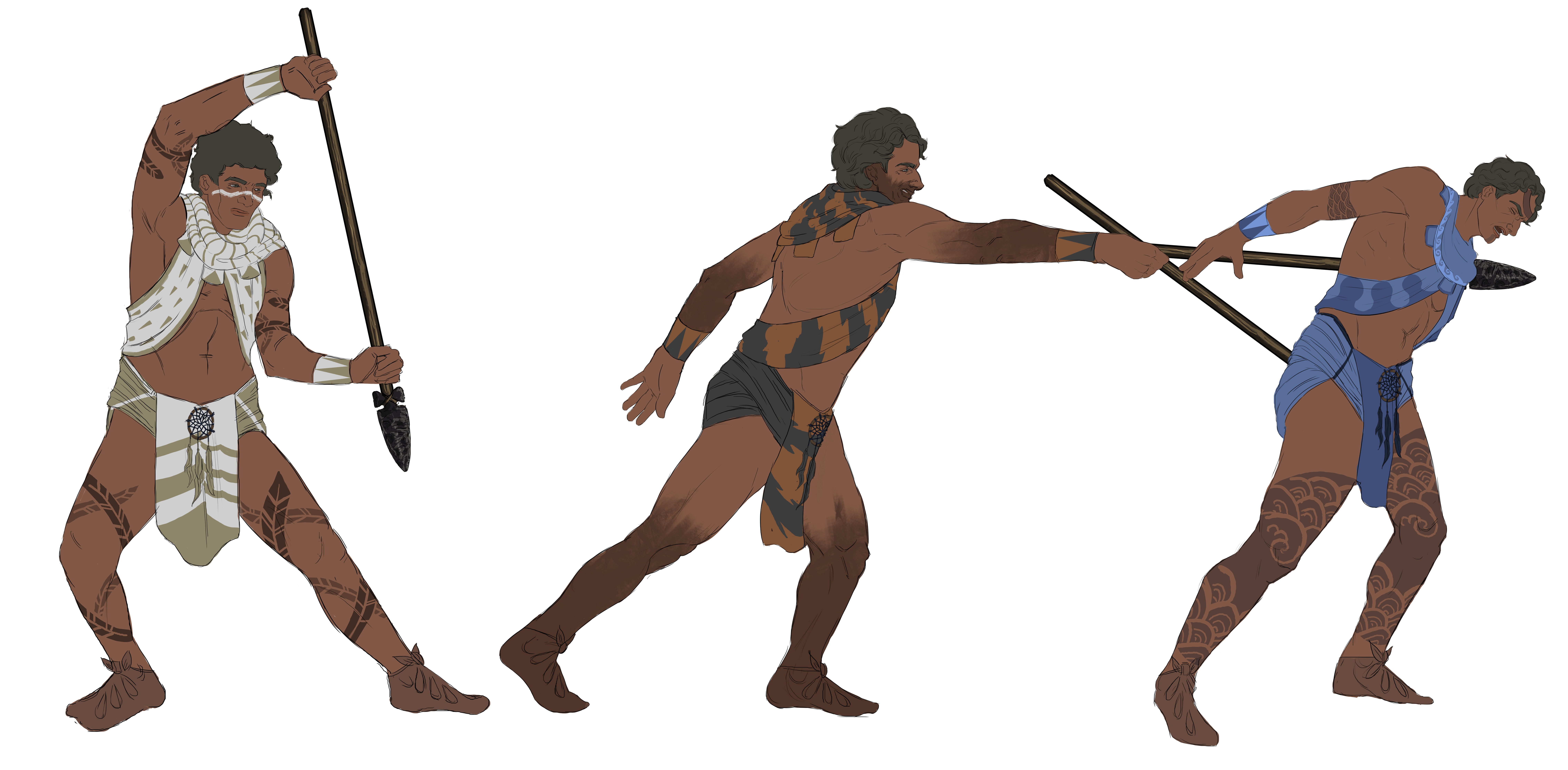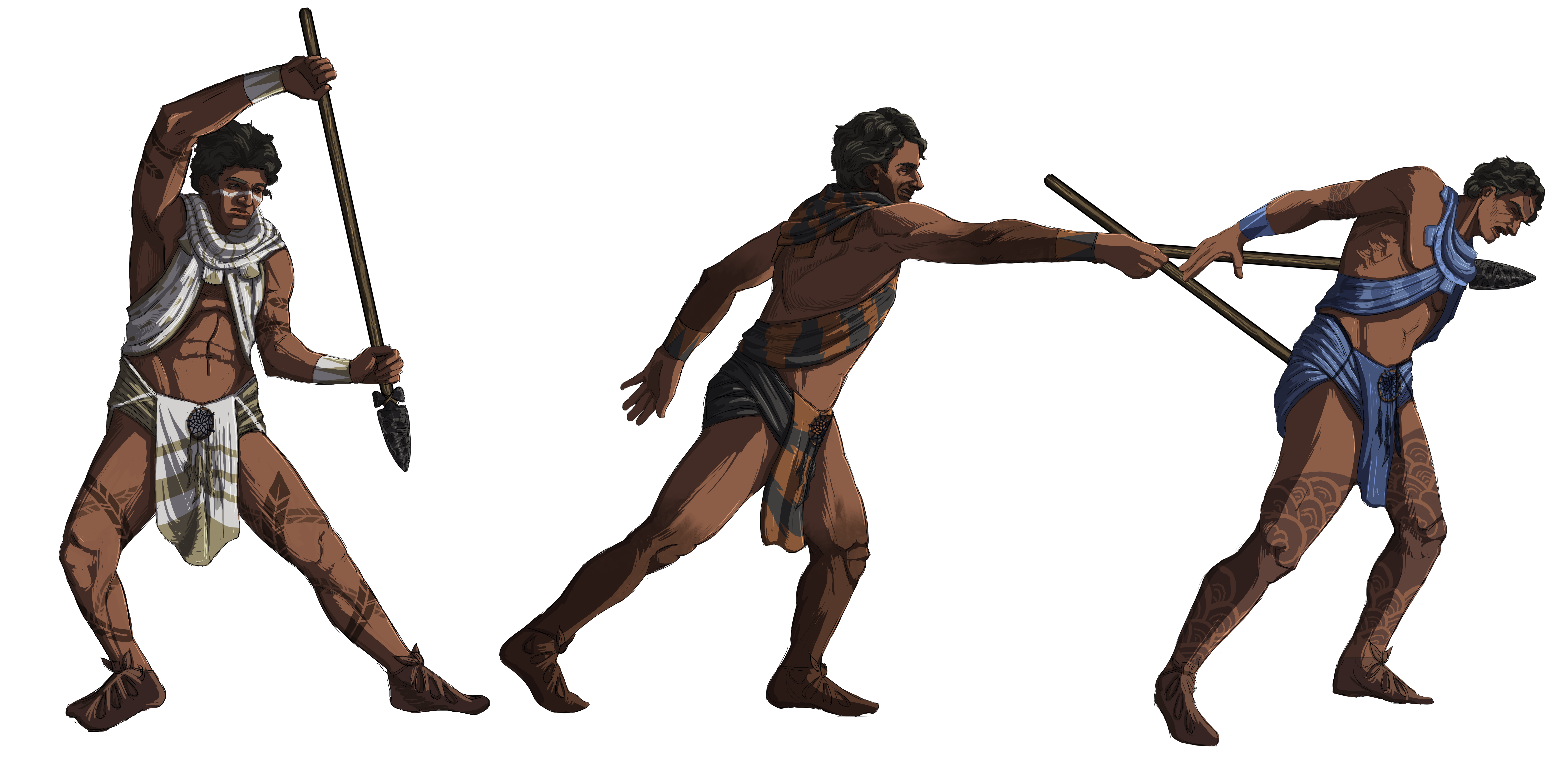
In the last part of our character design series, we talked about what goes into conceptualizing and designing characters and touched upon how Bazsó came up with distinct the art style for characters and how Szonja raised the bar when working with the majority of them.
Now it's time to discuss what actually happens after the initial phase of concepts and moodboards. Mind you, this will probably have information that is well-known by any graphic designers who work on 2D character art; yet others may find it intriguing.
A Sketch
Often - but not always - Geri prepares sketches for the individual phases of a character. Other times we take photos where one of us poses as the character and these can be used as references. The sketch or photo is then taken by Szonja who makes several improved sketches and concepts before she gets down a primary that we decide to roll with.
Linework
Working in Photoshop, Szonja does the linework for the 'idle' position of the character. There are usually several iterations of this until everyone is happy with all the aspects of the sprite. This is also the phase when a lot of detail gets placed and parts get more definition.

Coloring and Shading
The idle phase image then goes through coloring. This is usually not something we iterate much, as most of the time the color scheme is already set during the concept phase. This is where a lot of surfaces get details, like textiles. Everything is done with hard brushes, no texture brushes are used.
Shading is the last step, following the guidelines set by Bazsó in his initial character art direction to achieve that specific comic-book look. This involves applying a shadow layer first and then subtracting parts of it being hit by directional light. Finally, contact shadows and highlights are added.


Further Phases
This above process is then repeated 4-7 times (once for each pose), depending on the number of poses. Short review rounds are between each phase before the poses are accepted. After all that, the character's base art assets are done. Except...
Finishing Touches
Once the images are finalized, they are exported to .png format and are plugged right into Unity, where pivot points are set, placements are tweaked, and effects/decals are added, which is a whole, complex process in and of itself.
Challenges
Currently, the most challenging parts of this process are encountered when a character - due to variations in apparel and paraphernalia like the elemental shamans or tribesmen - has to have overlapping layers in the source files, matching perfectly with the other layers.
The other source of considerable headache is that the idle poses have to be ready to be skeleton-framed and animated later, so we have to think about that and draw 'behind' the future moving parts.
In the last part of our character design series, we'll talk about how we design character stats and combat roles, as well as how we implement them. Be sure to check that out, too!
Steam | GoG | Discord | Patreon | Youtube | Twitter | Facebook | Instagram